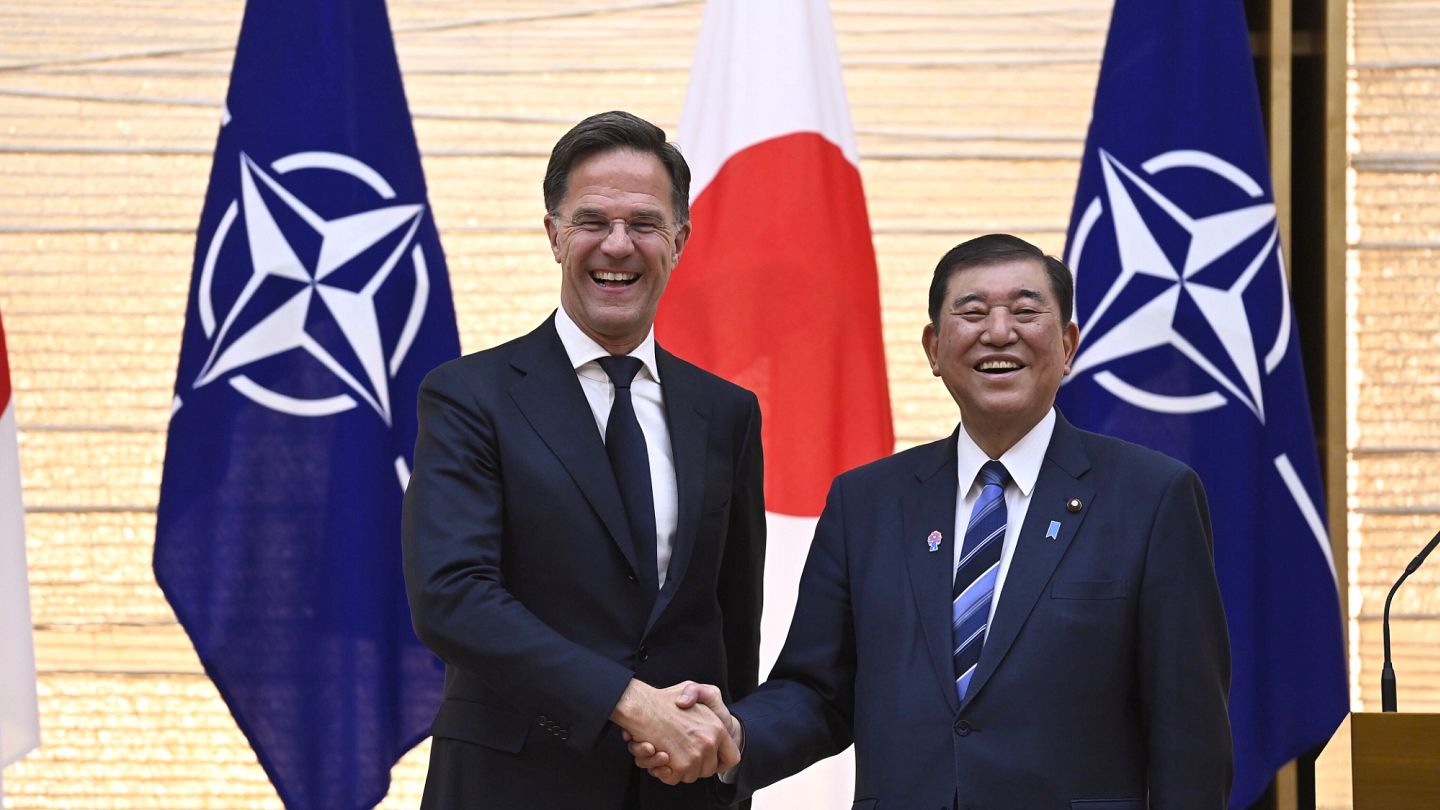Japan and NATO have agreed to deepen security ties.
Japan, which strengthens its defense ties with the U.S. and allied countries in the Indo-Pacific, is also trying to establish closer ties with NATO, expressing concerns that Russia's large-scale invasion of Ukraine could strengthen China’s claims in the region.
NATO chief Mark Rutte and Japanese Prime Minister Shigeru Ishiba emphasized the need to combat increasing threats from China, North Korea, and Russia, and pledged to deepen military ties further. Ishiba stated at a press conference held together with Rutte, who visited Japan for the first time since becoming NATO's Secretary General in October, "A stronger NATO will greatly benefit Japan." In a joint statement after their discussions, Ishiba and Rutte mentioned that strengthening defense industry cooperation is a "common priority." The two leaders also indicated plans to focus on developing advanced technologies and increasing their standardization.
The parties also agreed on enhancing cooperation in cyber defense and space, as well as increasing joint military exercises. Topics concerning drones and artificial intelligence were also addressed. Ishiba and Rutte condemned the increasing military ties between North Korea and Russia, including Moscow's use of North Korean missiles and troops against Ukraine, and expressed their concerns about China's support for Russia's industrial base. Rutte noted that Russia continues to attack Ukraine while pursuing its ambition to "reshape European security." Both leaders called for the protection of a "free and open Indo-Pacific" and opposed unilateral attempts to change the status quo by force in the East and South China Seas.
They also invited Beijing to increase the transparency of its military operations and to cooperate on arms control, calling for peace and stability in the Taiwan Strait. The NATO chief stated to reporters that China is making a significant military buildup by trying to control critical technologies, infrastructure, and supply chains, and continues to conduct "destabilizing activities" in the Indo-Pacific region. Rutte praised Japan's contributions to supporting Ukraine in the war against Russia. The NATO Security Assistance and Training for Ukraine (NSATU) command is located at a U.S. military base in Wiesbaden, Germany. Rutte mentioned that NSATU "helps Ukraine fight today, but also ensures that Ukraine builds its armed forces for tomorrow." Details regarding Japan's participation still need to be discussed, but if deployed, it is not expected that the Japan Self-Defense Forces will take on combat roles due to the post-war pacifist principles outlined in the country's domestic law.


